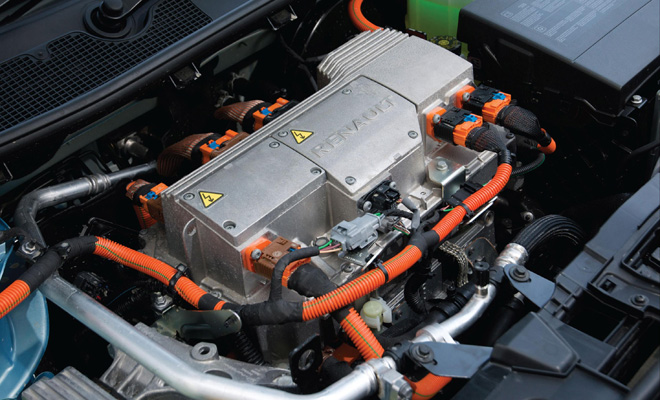by Antony Ingram 
Electric cars probably aren’t the first vehicles you might think of when choosing a car that can be run on a shoestring.
Years of premium pricing have planted a firm connection in the minds of many buyers between electric cars and extreme expense, even though outright prices are fast tumbling downwards these days. And on the face of it, there can be few better budget cars than a vehicle that costs you nothing to tax and does a hundred miles or so on pocket change.
But is it truly possible to buy and run an electric car on a budget? As the years tick by we’ll see more and more electric vehicles deposited onto used forecourts, their prices temptingly low next to brand new equivalents.

It’s happening already. Sales of Renault’s Fluence are still struggling to exceed double figures in the UK, but unpopularity has worked wonders for its used pricing. A quick search reveals nearly-new, year-old examples for as little as £7,000 – having lost a staggering 61% in value from the price paid new, or even more if you factor in the government’s contribution via the Plug-in Car Grant.
But that first owner’s crushing financial loss can be your gain. It takes real skill and planning to rack up big mileages in an electric car, so it’s likely that just a few thousand miles will be showing on the clock, the interior will be immaculate and everything will still be safely covered by a full Renault warranty. With no gearbox and clutch to chew up and no reciprocating metal objects to abuse, even the most ham-fisted of previous proprietors will have struggled to inflict any lasting damage.
Downsides? Well, you will be tied to a dealer network throughout the car’s life. You can forget home maintenance unless you feel especially confident around high voltage cables, and visiting your local scrappy for parts will vie with learning Arapaho among the best ways to utterly waste your time. Call upon even the most highly organised used parts specialist like Taroni Motor Salvage and your chances of finding a lightly soiled electric motor controller or even a shiny Renault ZE badge for the bootlid are vanishingly slim.

But the really big fly in the grease gun is the battery. Renault is one of a handful of companies offering a battery rental plan rather than a full buying deal. This may be good because the battery is officially not your problem if it goes pop, but is clearly bad from the perspective of low-cost motoring. Alas £77 per month over 36 months and 6,000 miles per year is as low as it gets. A 12-month, 15,000-mile contract will set you back £138 a month.
That’s still less than you’d spend on diesel doing 15,000 miles per year at 55 mpg. But only just. At today’s price of 137.9 pence per litre, your monthly diesel bill would be just £4 more than the battery rental cost.
And that’s before you’ve plugged the Fluence in. Electricity will certainly tip the balance in diesel’s favour, but not by a huge margin because juice is cheap. The Fluence has a 22 kilowatt-hour battery. Assuming you get 86 miles per charge (75 percent of the stated 115-mile range) and charge your battery 75 percent each time you plug in (around 16.5 kilowatt hours) we can work out the annual costs.
The average Economy 7 tariff is around 9.1 pence per kilowatt hour, around £1.50 per charge. If you do 6,000 miles per year, you’d pay around £104 a year in electricity for charging. Bump that up to 15,000 miles per year, and it’s £262. Considering that aforementioned diesel would cost you over £1,700 a year for 15,000 miles, it’s a shame the battery rental costs so much.
Still, all is not lost. Plump for a Fluence ZE and you’ve paid very little for the car in the first place, for a vehicle of its age and size. A nearly new Renault Megane diesel will typically have led a harder life and will empty your wallet of several thousand pounds more. You’ll also cover your hands, and possibly your clothes, in foul-smelling gunk every time you fill up. And the electric car is undoubtedly quieter, smoother and easier to drive.

Insurance? That’s not really a problem either. In fact, many drivers may find cover at pleasantly low prices, because electric car drivers aren’t the most risky group of tearaways and repairing the car after minor knocks is no more difficult than any other vehicle.
But can Renault’s Fluence be considered a true budget vehicle? Perhaps not yet. At £7,000 the sticker price is still a relatively hefty sum and then the battery rental gives all notions of miserly motoring a firm battering.
For a truly low-cost life behind the wheel of an EV, you’ll need to own the battery. Give it another year or two for cars like the Nissan Leaf and Mitsubishi i-Miev to drop in value, and running an electric car could finally start to prove very cost-effective indeed.
Is Renault’s Fluence ZE now a bargain electric banger?
29 November 2013
Read more about: electric cars Renault test drives









